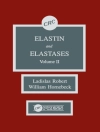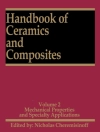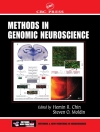In ‘Evolution, Old & New, ‘ Samuel Butler presents a compelling critique of Charles Darwin’s theory of evolution, intertwining a deep philosophical inquiry with a critical examination of natural selection. Written in Butler’s distinctive, candid prose, the work challenges prevailing scientific notions by positing an alternative view of evolution that incorporates elements of design and purpose. Throughout the book, he employs anecdotal evidence and rigorous reasoning, prompting readers to reconsider the mechanistic interpretations of life and its development, all while engaging with the broader cultural and intellectual currents of the late Victorian period. Samuel Butler, an iconic figure of the Victorian era, was not only an author but also a painter, philosopher, and social critic. His multifaceted interests and life experiences—including his time in New Zealand, where he engaged with both the natural world and indigenous cultures—shaped his understanding of evolution. Butler’s unique perspective, which combines literary artistry with philosophical depth, stems from his restless intellectual curiosity and an enduring challenge to orthodox beliefs in both science and society. This book is essential for readers interested in the intersections of literature, science, and philosophy. Butler’s provocative arguments invite reflection on the nature of progress and adaptation, making ‘Evolution, Old & New’ a significant contribution to the discourse on evolution that remains relevant today.
Circa l’autore
Samuel Butler (1835–1902) was an iconoclastic English author who garnered respect and controversy in equal measure with his diverse body of work. A man of polymathic tendencies, his literary contributions range from satirical novels to essays and philosophical treatises. He is perhaps best remembered for his semi-autobiographical work, ‘The Way of All Flesh’, and the satirical utopian novel, ‘Erewhon’, but his forays into the field of evolutionary theory, particularly with ‘Evolution, Old & New’, also marked a significant intellectual engagement with contemporary scientific discourse. In this book, Butler critically examines the theories of Charles Darwin, proposing instead a version of evolution that emphasized memory and the inheritance of acquired characteristics. His work was provocative, advocating for a holistic understanding of evolution before the rediscovery of Mendelian genetics. Although his ideas in this area were largely dismissed by the scientific community, they contributed to the broader conversation around evolution. Butler’s literary style, characterized by wit, skepticism, and a clear, direct prose, often challenged orthodox sentiments of Victorian society. His intellectual vigor extended even to translations of Homer, where he argued for theories of authorship that were well ahead of their time. Samuel Butler’s oeuvre is characterized by a critical examination of the orthodoxies of his time, marking him as a singular figure in the landscape of English literature and thought.












